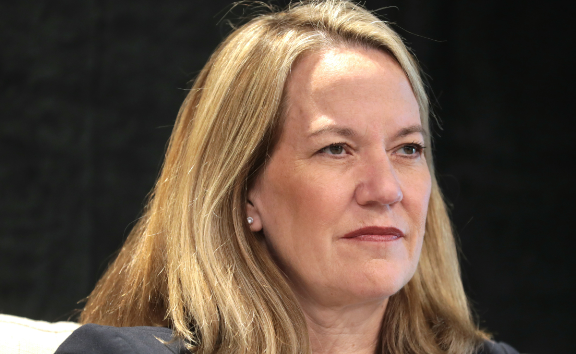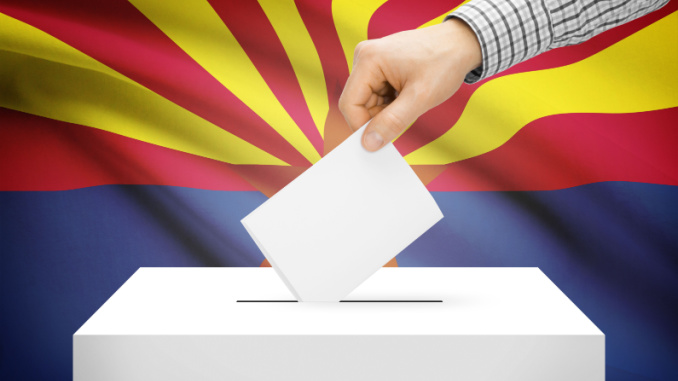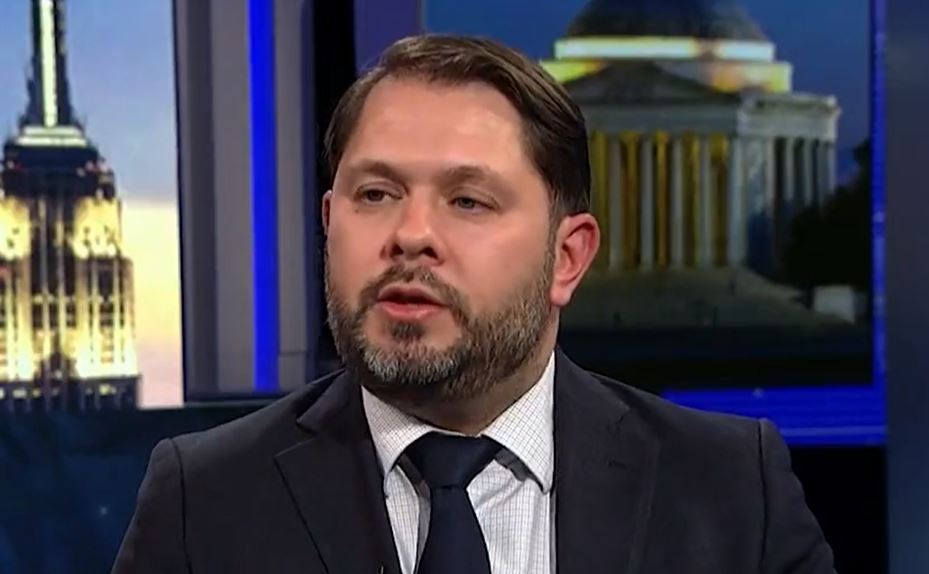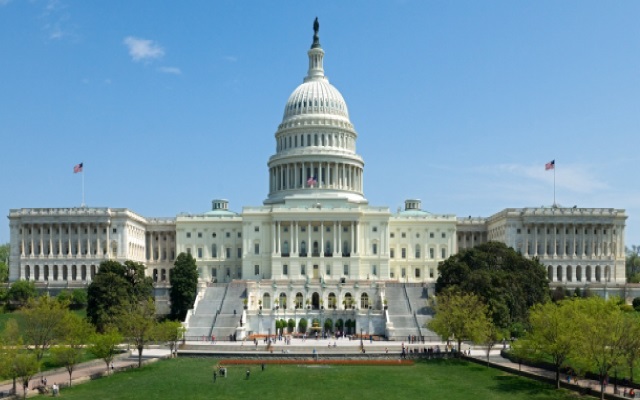
by Ethan Faverino | Nov 17, 2025 | News
By Ethan Faverino |
The Goldwater Institute has filed a lawsuit against Arizona Attorney General Kris Mayes, demanding the release of consumer records tied to the AG’s 2024 antitrust lawsuit against nine major residential landlords and RealPage, Inc.
Filed on November 12, 2025, in Maricopa County Superior Court, the suit accuses the Democratic attorney general’s office of violating Arizona’s public records law by refusing to disclose basic information about complaints, or lack thereof, that prompted the state’s allegations of an illegal rent price-fixing conspiracy affecting hundreds of thousands of renters in Phoenix and Tucson metros.
Stacy Skankey, litigation director for the Goldwater Institute’s American Freedom Network, noted that there was no mention of any actual consumer complaints.
Skankey emphasized that Goldwater takes no position on the underlying antitrust claims. Instead, it seeks only aggregate data: the total number of consumer complaints received by the AG’s office regarding RealPage and the defendant landlords, including any unsolicited submissions.
The Goldwater Institute first requested the records in April 2024. After months of silence, the AG’s office issued a denial in January 2025. Follow-up attempts went unanswered, prompting Wednesday’s legal action.
“It should be very easy to comply with, and yet, you know, after this long, drawn-out process, here we are now having to demand that these be produced,” stated Skankey.
The Center Square reported that when it contacted the Attorney General’s Office, the agency responded that it had produced all documents required under state law.
Kris Mayes’ communications director, Richie Taylor, also told The Center Square, “Attorney General Mayes is proud to have taken on major corporate landlords and RealPage for allegedly orchestrating a price-fixing scheme that drove up rents for families across Arizona.”
Skankey responded, saying she and her team disagree with the statements made by the AG’s office, and there is no proof they complied with the state public records law.
Ethan Faverino is a reporter for AZ Free News. You can send him news tips using this link.

by Jonathan Eberle | Nov 17, 2025 | News
By Jonathan Eberle |
The Arizona Freedom Caucus (AFC) is throwing its support behind a new election-related proposal from Rep. Alexander Kolodin, announcing its endorsement for the Arizona Secure Elections Act, a measure the group says is aimed at restoring trust and stability in the state’s voting system.
The bill outlines a series of election policy changes that AFC members argue are necessary to address ongoing concerns about administration errors, delays, and voter confidence. According to the caucus, repeated issues in recent election cycles have eroded public trust and demand a comprehensive response.
“The integrity of our elections remains a top priority,” the caucus said in its statement, pointing to what it described as persistent failures that have “made it impossible for reasonable people to trust the integrity of the process and therefore outcomes.” The AFC said its legislative agenda will continue to center on tightening election procedures and removing what it views as opportunities for error or abuse.
The Arizona Secure Elections Act would make a series of changes to election laws, including affirming the principle of “one citizen, one vote”; banning campaign or ballot-measure contributions from foreign individuals or corporations; requiring government-issued identification for all voters; ending early voting at 7 p.m. on the Friday before Election Day; prohibiting ballots from being cast or accepted after polls close on Election Day; guaranteeing access to in-person voting at local polling places; and requiring mail-in voters to confirm their mailing address every election year.
If approved by lawmakers, the measure would appear on the next general election ballot for voters to decide, setting up a statewide vote as soon as 2026. AFC Chair Sen. Jake Hoffman praised both the proposal and Kolodin’s involvement, calling the act a pivotal step toward what the caucus views as long-needed structural reforms.
“With our endorsement, we will be working to ensure that Arizonans have the opportunity to vote for this Act on the 2026 ballot,” Hoffman said, crediting Kolodin and other AFC members for advancing what he characterized as essential election security priorities.
The legislation, if passed, would bypass the governor and head directly to voters for final approval. The AFC says it intends to campaign for the measure statewide ahead of the 2026 election. The proposal is likely to draw significant attention as lawmakers continue to debate voting access, election security, and administrative reforms—issues that have dominated Arizona politics across several cycles.
Jonathan Eberle is a reporter for AZ Free News. You can send him news tips using this link.

by Staff Reporter | Nov 16, 2025 | News
By Staff Reporter |
Democratic Sen. Ruben Gallego has refused to delete an unverified theory about the relationship between child sex trafficker Jeffrey Epstein and President Donald Trump.
Gallego claimed Trump and Epstein spent Thanksgiving together in 2017, citing an email exchange from Epstein. The Democratic Party deleted their post propagating this claim, which Gallego quoted in a post on X.
“The ‘Trump was secretly helping the cops take down Epstein’ theory kinda falls apart when you know he may have spent Thanksgiving with him. As President. After Epstein was already convicted,” said Gallego.
Over a decade before 2017 Thanksgiving, however, Trump had banned Epstein from Mar-a-Lago. Multiple sources have reported this timeline in years past to reporters and in a book published in 2020.
In 2008, Epstein was convicted of two state felony charges in Florida: soliciting prostitution, and soliciting prostitution with a minor. Epstein entered a plea deal of a 13-month jail sentence with work release and requirement to register as a sex offender.
Trump has repeatedly claimed to have had no knowledge of Epstein’s crimes until the federal charges emerged in 2019. The president also claimed at the time that he hadn’t spoken to Epstein in about 15 years.
It wasn’t until late 2018, a year after the Thanksgiving in question occurred, that investigative reporting from the Miami Herald publicized details of the 2008 plea deal. That following summer, federal prosecutors hit Epstein with the child sex trafficking charges that would ultimately conclude with his apparent suicide in prison a month later.
Unlike Gallego, the Democratic Party deleted their post on X in which they claimed Trump spent Thanksgiving with Epstein in 2017. Included in the post was a picture of an email exchange between Epstein and the founder of a major modeling agency, Faith Kates.
“Documents show Donald Trump spent Thanksgiving with Jeffrey Epstein in 2017,” said the Democrats in their deleted X post. “At the time, Trump was already president, and Epstein was already a convicted sex offender.”
Trump spent Thanksgiving at his Mar-a-Lago estate in Palm Beach with family in 2017. A book published in 2020, “The Grifter’s Club: Trump, Mar-a-Lago, and the Selling of the Presidency,” included accounts from several Mar-a-Lago club members that Trump banned Epstein from the club years before the holiday, sometime before the 2008 pleading.
The Thanksgiving 2017 email was part of the 20,000-document dump from House Republicans on Wednesday, just hours before the House passed an agreement to end the government shutdown with six Democratic votes.
In another email from January 2019, approximately six months before federal prosecutors closed in and about two months after the investigative report dropped, Epstein claimed in an email to Michael Wolff, an author-journalist and longtime confidant of his, that Trump had knowledge of Epstein’s sex trafficking.
“Trump said he asked me to resign, never a member [at Mar-a-Lago] ever,” said Epstein. “Of course [Trump] knew about the girls as he asked Ghislaine to stop.”
Ghislaine Maxwell was the British socialite convicted of child sex trafficking for Epstein in 2021.
Maxwell trafficked one of her victims, Virginia Giuffre, from her job as a teenage Mar-a-Lago spa attendant. Giuffre was 16 when she was trafficked.
Throughout her book “Nobody’s Girl,” public statements, and sworn testimonies, Giuffre has offered consistent, repeated defenses of Trump’s innocence and non-involvement with Epstein’s trafficking.
Giuffre’s statements also challenge the reliability of Epstein’s perspective and claims about Trump in his emails. In another email released within the 20,000 documents this week, Epstein claimed Trump and Giuffre “spent hours” together at his home. However, Giuffre said in her book that she only met Trump several times briefly in public places, such as Mar-a-Lago before she was trafficked and at a Halloween party.
Giuffre is unable to offer further clarity on these developments in the Epstein files, as she committed suicide in April. Her book was published posthumously in October.
AZ Free News is your #1 source for Arizona news and politics. You can send us news tips using this link.

by Matthew Holloway | Nov 16, 2025 | News
By Matthew Holloway |
Arizona’s House GOP members presented a unified front Wednesday as Congress ended the weeks-long federal government shutdown, criticizing Democrats for prioritizing politics over the disruptions it caused Arizonans. Rep. Abe Hamadeh (R-AZ08) delivered one of the sharpest rebukes, claiming Democrats triggered the shutdown by refusing to back a Continuing Resolution similar to extensions they supported under the Biden administration.
“Make no mistake about it; the Democrats’ disgusting shutdown was only about attacking President Trump. They didn’t care if Americans were collateral damage,” Hamadeh said.
He described spending Veterans Day with families and servicemembers in his district who faced suspended federal services, adding that many urged him to “hold the line” until a deal was reached.
Hamadeh described his team as “energized” as the government reopens, saying, “We know we have our work cut out for us as the nation recovers from the Democrats’ misguided shutdown. While my team has been staying on top of casework and legislation, the shutdown prevented us from having full access to the personnel and services taxpayers pay for. As a result, we are going to be working overtime to ensure that we minimize the damage the Democrats created. I encourage my constituents to reach out to my office for any assistance with federal agencies they might have.”
Rep. Eli Crane (R-AZ02) echoed the criticism, describing the lapse in funding as “the longest federal government shutdown in U.S. history.” Crane said the shutdown strained food banks, caused travel delays, and left rural families unsure whether they could access key services.
“Last night, I once again voted to fund the federal government. The American people should never be used as leverage to advance a political agenda,” said Rep. Crane. “To those who dealt with missed paychecks, worked without pay, and lived with great uncertainty, your determination and resolve are admirable. To the amazing people of rural Arizona who stood by one another during this challenge, I’m grateful for your strength and dedication to each other.”
In a post to X he wrote, “The American people should never be used as leverage to advance a political agenda.”
Rep. Juan Ciscomani (R-AZ06) faulted Democrats for rejecting what he called a “clean CR,” arguing that their last-minute demands forced the shutdown.
“Every single Democrat who voted against this clean CR voted for a government shutdown,” Ciscomani said in a statement. He told local reporters the standoff was driven by a “long wishlist of policy items” that Democratic leaders attempted to insert at the eleventh hour, “using our government as hostage to push their policy agenda through.”
Ciscomani visited with families in his district whose services were interrupted during the shutdown, including parents of disabled children and veterans dependent on federal support. He said he intends to monitor agency performance closely as operations resume.
The Tucson Republican soundly condemned Arizona Democrats in a post to X, “This shutdown was completely unnecessary and overdue to end. It’s disappointing to still see so many democrats, especially Arizonans, voting to remain shut down. “
Rep. Andy Biggs (R-AZ05) issued his own statement praising the House’s vote to reopen the government, thanking conservatives who pressured leadership to reject Democratic terms and focus on fiscal restraint. Biggs applauded colleagues for what he called a “moment to permanently shrink the federal bureaucracy, restore constitutional limits, and return power to the states.”
The shutdown ended Wednesday after the House approved the Senate-passed funding package, and President Trump signed the bill into law, restoring government operations while avoiding the policy disputes that sank earlier versions. Democrats contend they rejected the previous CR because of Trump-aligned provisions and budget riders they argued would worsen long-term fiscal conditions.
Rep. Hamadeh framed the episode as senseless and revealing of Democrats’ priorities.
“The Democrats accomplished nothing with their senseless shutdown,” Hamadeh said, concluding, “except to show – without a doubt – that they do not put Americans first.”
As agencies reopen, GOP congressional offices across the state say they are preparing for an increase in casework as constituents attempt to navigate backlogged systems. Crane and Hamadeh both urged constituents to reach out as services begin returning to normal.
Matthew Holloway is a senior reporter for AZ Free News. Follow him on X for his latest stories, or email tips to Matthew@azfreenews.com.

by Ethan Faverino | Nov 16, 2025 | News
By Ethan Faverino |
U.S. Congressman Abe Hamadeh (AZ-08) urged Attorney General Pam Bondi to launch a federal investigation into allegations of bribery and prosecutorial misconduct tied to the Democrat Attorneys General Association (DAGA), the States United Democracy Center (SUDC), and multiple state attorneys general offices.
The congressman, a former prosecutor, highlighted the direct impact on his Arizona constituents—grandmothers, business leaders, veterans, seniors, and activists—who he says have been targeted for exercising their First Amendment rights in what appears to be politically motivated prosecutions.
Court filings in State of Arizona v. Kelli Ward et al. uncovered an apparent coordinated scheme where partisan nonprofits allegedly funneled payments to influence criminal cases.
Key allegations outlined in Hamadeh’s letter to AG Bondi include:
Suspicious Financial Timing: Arizona AG Kris Mayes received $200,000 from DAGA. She received $50,000 after hiring SUDC in May 2023, and $150,000 right after announcing indictments in April 2024, raising red flags of potential quid pro quo.
Unprecedented Control by Partisan Group: The Arizona AG’s office claims an attorney-client relationship with SUDC, effectively ceding prosecutorial authority to a politically aligned nonprofit, undermining independence and due process.
Opaque Organizational Ties: Tax records indicate that SUDC shares leadership, addresses, and bank accounts with the Progressive State Leadership Committee, a structure seemingly designed to mask money flow and coordination.
Hamadeh also pointed to SUDC co-founder Marc Elias’s prior sanctions by the Fifth Circuit for “redundant and misleading” conduct and lack of candor, including filing undisclosed duplicate motions, requiring him to complete court-ordered ethics training.
“My constituents, including veterans and seniors who make up a significant portion of AZ-08, deserve confidence that their taxpayer dollars ensure law enforcement decisions affecting their rights are made impartially, and are not going to partisan Democrat-affiliated organizations,” stated Congressman Hamadeh. “The apparently credible allegations rise to a level of seriousness that warrants an investigation by the U.S. Department of Justice.”
In his letter to AG Pam Bondi, Hamadeh demanded answers within 30 days on:
- The status of any DOJ probe into DAGA-SUDC arrangements.
- Similar financial ties in other states with politically charged cases.
- Protections for defendants’ due process rights.
- Review of tax filings, bank records, and communications.
- Timeline for investigation and public findings.
“The allegations outlined above, if substantiated, represent a fundamental corruption of prosecutorial independence and the rule of law,” concluded Hamadeh. “My constituents and all Americans deserve to know that criminal prosecutions are conducted based on evidence and law, not influenced by financial payments from partisan political organizations.”
Ethan Faverino is a reporter for AZ Free News. You can send him news tips using this link.

by Staff Reporter | Nov 15, 2025 | News
By Staff Reporter |
South Tucson Mayor Roxanna “Roxy” Valenzuela is in a relationship with former New York Mayor Bill de Blasio.
De Blasio is still legally married. He and his wife, Chirlane McCray, separated in 2023 but did not divorce.
At the time that Valenzuela and de Blasio began seeing one another, the former mayor was still in another relationship with Nomiki Konst: a New York progressive activist and former Arizona candidate who formerly was a reporter with “The Young Turks” podcast, as the New York Post reported.
Although Konst hails from New York currently, she is originally from Tucson like Valenzuela. Konst ran for Congress in Arizona briefly in 2012, the same year she co-chaired former President Barack Obama’s re-election campaign.
De Blasio said he hoped Konst would still be his friend after learning of this affair.
“Nomiki and I had a lovely relationship for 10 months, I have deep respect for her and what she stands for, and I hope we can have a real friendship in the future,” said de Blasio.
Since unofficially splitting with his wife, de Blasio has enjoyed a string of affairs widely reported in the press.
In December 2023, de Blasio had an affair with a then-married woman, Kristy Stark, who at the time founded and led an early childhood behavioral company supported by the Bill and Melinda Gates Foundation. This month, Stark joined the University of Michigan faculty as a behavioral science professor.
Although Stark claimed to be going through a divorce at the time of her tryst with de Blasio, her then-husband denied knowledge of any divorce taking place and any infidelity by his then-wife.
Court records show divorce proceedings initiated in Michigan in January 2024, almost a month to the day after reports emerged of Stark and de Blasio’s affair.
De Blasio is also affiliated with the University of Michigan within the Gerald R. Ford School of Public Policy as a residence policymaker.
Already reports have emerged that de Blasio’s latest relationship with Valenzuela has taken a turn for the worse, per anonymous sources, who say the mayor wants to progress the relationship.
Valenzuela and de Blasio met during a June fundraising dinner in Arizona. The two were introduced by de Blasio’s then-girlfriend, Konst, per reports.
In recent weeks, Valenzuela was reported as residing in a motel purchased in 2023 for affordable housing by the organization where she works, Casa Maria Catholic Worker Community.
Although Valenzuela does have two children, she is not married. The father of one of her children, Billy Peard, told The Post that he and Valenzuela share parenting responsibilities. Per social media posts, the two were partners for around one of the two years of their daughter’s life.
Peard, a Tucson attorney, previously ran for the Arizona State House in 2020 as a Democratic candidate. Prior to that, Peard was a staff attorney for the ACLU, Community Legal Aid, and Georgia Legal Services.
Like Valenzuela, de Blasio has two children.
AZ Free News is your #1 source for Arizona news and politics. You can send us news tips using this link.






